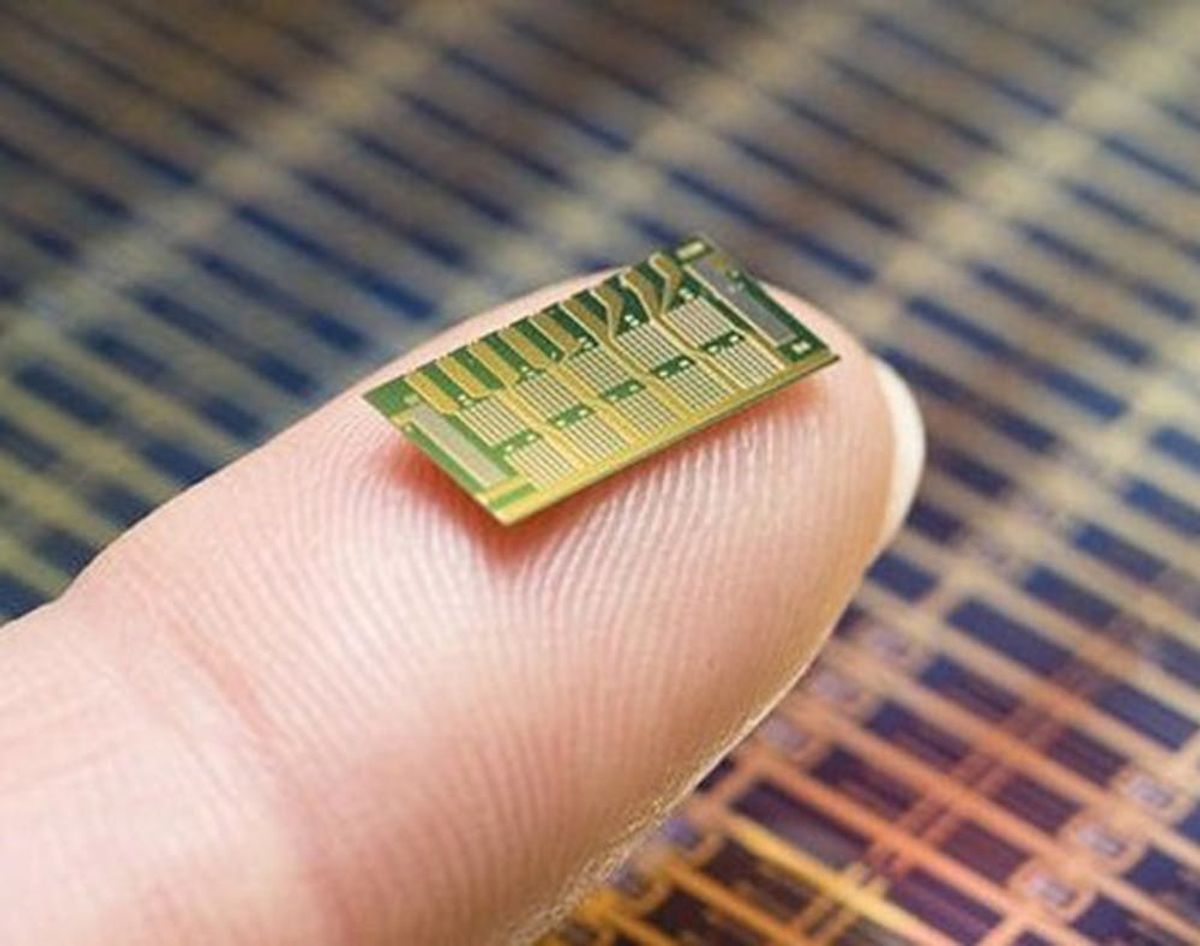Taking your birth control pill every day is so 2017.
The Future of Birth Control Is This Remote-Controlled Microchip

Taking your birth control pill every day is so 2017. By 2018, a remote-controlled microchip embedded in your bod could be your preferred method of contraception.
Think about it like The Patch 2.0, but instead of going on your bod, this is going in. The little, fingertip-sized microchip (measuring in at 20mm x 20mm x 7mm, bust out the ruler or check out the pictures) would be implanted under your skin. Each day the birth control version would release 30mg of levonorgestrel, a hormone that is used in contraceptives, maybe even the pill you use right now.
Totally surpassing the length of time of even a five-year IUD, the device could provide effective birth control for the wearer for up to 16 years. The hormone is stored in microreservoirs covered by titanium and platinum seals. Once a day a tiny internal battery would temporarily melt the seals to allow it to enter the body.
Controlled, by a wireless remote control, you could set this to occur daily or turn it on and off, if, for example, you wanted to try to conceive. Over the next four years of development, we bet this remote control (and its likely companion app) will develop alongside the implantable tech it’s connected to. What if you could use it to track your periods and other related vitals, perhaps as part of a mobile system that you could choose to share parts of with your doctor.
Although titanium, platinum, and 16-year supplies of medicine don’t make us think “cheap and affordable,” reducing healthcare costs is part of Microchips’ vision. The Bill + Melinda Gates Foundation has put some serious funding behind the technology for the drug delivery chip that will be able to administer a range of meds. Currently products for osteoporosis, MS and a “rescue device” for hypoglycemia are in development in the Microchips labs, with pre-clinical trials starting for the contraceptives next year. Their goal is to make implantable birth control an (affordable, even?) option for contraception by 2018.
What do you think of birth control by way of microchip and remote control? Share your thoughts below!
(h/t GeekWire)












